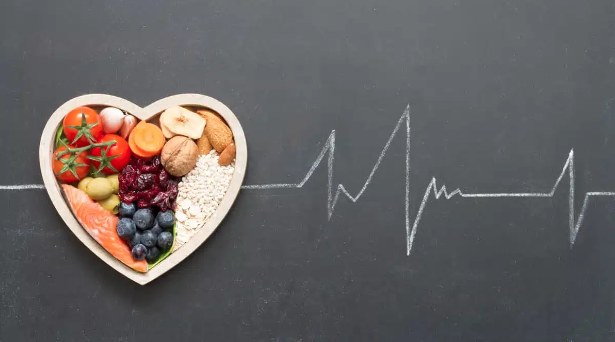Heart Attacks in Men
Your questions answered on heart attacks in men. Including information about screening and how to prevent one through simple lifestyle choices.
Medically reviewed by:

MD, FRCPC
Men are 2x more likely to suffer a heart attack than women
What is Heart Attack ?
A heart attack (Myocardial Infarction) happens when an artery carrying blood and oxygen to the heart gets blocked and causes part of the heart muscle to get damaged or die.
Heart attacks can also be caused by a coronary artery spasm, which causes temporary tightening of the artery, stopping blood flow.
A heart attack can be mild, severe or fatal, depending on how long the blood supply is cut off.
There are two types of heart attacks:
- STEMI: A complete artery blockage causing part of the heart muscle to die.
- Non-STEMI: A partial artery blockage causing damage to part of the heart muscle.
Signs & Symptoms
Some people may experience just one of the below symptoms, while others may experience a combination. Symptoms can last from a few minutes to a few hours, appear slowly or be sudden and intense.
- Chest discomfort (pressure, squeezing, fullness or pain, burning or heaviness)
- Excessive sweating
- Upper body discomfort (neck, jaw, shoulder, left or both arms, back)
- Nausea
- Shortness of breath
- Light-headedness
- If you are experiencing signs of a heart attack, call 9-1-1, sit or lie down and follow the instructions of the emergency operator.
- If you take nitroglycerin, take your normal dose. If you are not allergic or intolerant, take one Aspirin 325mg tablet or two 81 mg tablets.
Risk Factors
The following risk factors can contribute to developing a heart attack:
- Smoking
- High blood pressure
- High cholesterol and triglycerides
- Unhealthy weight
- Diabetes
- Metabolic syndrome
- Not enough exercise
- Stress
- Recreational drug use
- Age (older = higher risk)
- Family history of heart disease
- Medical history
- Indigenous, South Asian, African heritage have higher risks of heart disease
Are You At Risk?
Learn your risk level for the most common men’s health conditions in 10 minutes with a free, confidential, and personalized report.
Screening
Men are diagnosed with heart disease about 10 years younger than women (55–64 vs 65–74 years of age).
Health Canada
Some of the above risk factors for heart disease can be detected and treated early by regular examinations with a healthcare practitioner.
- Blood pressure test by a healthcare practitioner (monitor using an at-home device)
- Blood test for cholesterol levels (for men over 40, or earlier with increased risk factors)
- Blood test for diabetes (every three years for men over the age of 40, or earlier and more frequently with increased risk factors)
Download the Men’s Health Checklist for a full list of what tests you need, and when to screen for common men’s health conditions.
Diagnosis
Diagnosis is determined following a physical exam, tests and review of medical history. Tests may include an ECG/EKG to measure your heart’s activity, blood tests, chest x-ray and others.
Prevention
Get Active
People who are not active have double the risk of heart disease and stroke.
The Heart & Stroke Foundation recommends at least 150 minutes of moderate to vigorous-intensity aerobic physical activity per week, in periods of 10 minutes or more. If you’re short on time, remember that any physical activity is better than none.
Eat Healthier
Up to 80% of premature heart disease and stroke can be prevented through lifestyle habits, like eating a healthy diet and being physically active. Aim to fill half your plate with vegetables and fruit, consume more whole grains and try swapping in more plant-based proteins.
Quit Smoking
Smoking triples the risk of dying from heart disease and stroke in middle-aged men. Tobacco use can lead to more plaque buildup in your arteries. Within 24 hours of quitting, your heart attack risk starts to go down.
Drink Less
Consuming seven alcoholic drinks or more per week significantly increases your risk of heart disease and stroke. Start by counting how many drinks you have weekly and set targets to drink less.
Stress Less
Occasional stress is okay, but chronic stress, or sudden intense stress, can increase blood pressure and potentially affect heart health. MindFit Toolkit can also help you build the skills to cope with stress and anxiety better.
Get Easy Tips To Reduce Your Risk
Treatment
At the hospital, treatment will begin immediately to restore blood flow. This could include aspirin or other medication to prevent blood clots, medication to break up clots, and medication to decrease the workload in the heart and ease pain. Tests to determine if surgery or other treatment is needed may also be required.
Follow-up treatment for a heart attack could include medication, surgery and changes to lifestyle.
Frequently Asked Questions
A Guy’s Guide to Eating Healthy
Make healthy eating easier with simple dietitian tips, food facts and recipes made for men.

proudly sponsored by:

Medically reviewed by:

Dr. Saul Isserow, MD, FRCPC
Dr. Isserow is an award-winning cardiologist specializing in sports cardiology and preventative cardiology.
More about Dr. Saul Isserow

